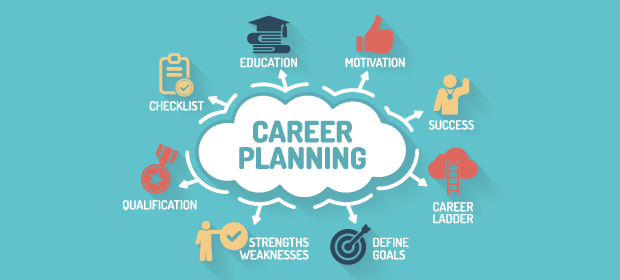Individuals who are keen on making a difference in the world frequently seek careers that allow them to do so. While many are familiar with such popular career paths as teaching, social work or non-profit management, there are lesser-known careers that can be just as impactful. This article will explore five such careers and how they can make a difference in people’s lives.
- Environmental scientists
Environmental scientists research both the effects of human activity on the environment and the natural world. They spot environmental issues and provide solutions, encourage sustainability and safeguard community health and well-being. They also create and campaign for laws and policies to deal with environmental problems.
Environmental scientists must have excellent analytical, critical thinking and problem-solving skills and often hold a bachelor’s or master’s degree in environmental science, biology, chemistry or a related discipline.
Air and water pollution, climate change, waste management and the preservation of natural resources are just some of the challenges that environmental scientists concentrate on. They create plans to lower the negative effects of human activities on the environment, such as encouraging recycling and trash reduction, cutting greenhouse gas emissions and creating sustainable energy sources.
Environmental scientists need to stay up to date with new technology, such as remote sensing and geographic information systems (GIS), to remain relevant in their field. These innovations have altered environmental monitoring and analysis, enabling researchers to create more practical responses to environmental issues and support the well-being of communities.
- Genetic counselors
Genetic counselors are healthcare professionals who specialize in the field of genetics. They work with individuals and families to identify genetic risks and provide information and support regarding genetic conditions. Genetic counselors help patients to understand the implications of genetic testing and make informed decisions about their health.
They have an in-depth understanding of genetics and are often certified with a master’s degree. Genetic counseling is essential to personalized medicine, as it helps patients understand how their genetic information can inform treatment decisions. The demand for genetic counselors is growing due to the increasing availability of genetic testing and awareness of genetics in health. Employment of genetic counselors is projected to grow 18% from 2021 to 2031, making it an attractive career option.
- Music therapists
Music therapy is a healthcare profession that employs music to assist those with physical, emotional, cognitive and social needs. Music therapists work with patients of all ages and backgrounds, employing music to help them manage pain, lessen stress and anxiety, boost communication skills and accomplish different therapeutic goals.
Music therapists must have a solid background in music theory and performance, as well as an understanding of human anatomy, psychology and development. Most music therapists have a bachelor’s or master’s degree in music therapy or a related field and are certified by the Certification Board for Music Therapists (CBMT).
Music therapy can take various forms, depending on the requirements of the patient. A music therapist may use live music to help a patient with dementia recall memories and improve their mood, for instance, or use a rhythm-based exercise to help a patient with Parkinson’s disease improve their movement and balance.
Music therapy has been shown to have many benefits for patients, including reducing anxiety and depression, improving communication and social skills and enhancing general quality of life. Because music therapy is a non-invasive and enjoyable form of therapy, it can be a valuable complement to other medical treatments and interventions.
- Pharmacists
Pharmacists are medical professionals who are in charge of giving patients the prescription drugs that their doctors have ordered. They are crucial to the healthcare system because they make sure that patients get the necessary prescriptions and instructions on how to use them correctly. Patients can also get information and guidance from pharmacists on a variety of health-related topics, including food, exercise and illness prevention.
One needs to be very analytical, organized and communicative to become a pharmacist. It’s also crucial to have a solid grasp of biology, chemistry and medical terminology. The most recent medications, medical breakthroughs and therapies must also be familiar to pharmacists. They need both a Doctor of Pharmacy (PharmD) degree, which normally takes four years to accomplish, and a bachelor’s degree in pharmacy.
The PharmD program provides deep training on pharmacology, patient care and drug therapy management. The curriculum integrates courses on pharmacokinetics, pharmacodynamics, drug interactions and the principles of pharmacy practice. The program also includes clinical rotations in diverse healthcare settings, such as hospitals and community pharmacies, which provide students with hands-on experience in patient care.
The University of Findlay offers an Doctor of Pharmacy online that allows students to complete their coursework at their convenience. The program provides the same curriculum as the traditional on-campus program and includes clinical rotations that students can complete in their local area. The online format allows students to balance their coursework with other commitments, such as work or family responsibilities, and offers greater flexibility in pursuing their education.
- Biostatisticians
Biostatistics employs statistical methods in biological and medical research, ensuring accurate and reliable research findings. Biostatisticians design experiments, analyze data and draw meaningful conclusions from research findings. A solid background in mathematics, statistics, biology, medicine and research methods is key, with most biostatisticians holding a master’s or doctoral degree in biostatistics or a related field.
Biostatisticians analyze clinical trials, epidemiological studies and huge datasets to identify patterns and trends in patient outcomes. They are critical in developing the COVID-19 vaccine and studying the genetic basis of disease.
The demand for biostatisticians is projected to grow 31% from 2021 to 2031, driven by the healthcare industry’s need for biostatisticians to design and analyze clinical trials, conduct epidemiological studies and analyze large datasets. Consulting firms and government agencies also offer opportunities for biostatisticians to conduct health policy research and provide statistical support for healthcare decision-making.
To sum up, while some careers may be more well-known than others, they all have the potential to make a significant impact on people’s lives. From pharmacy to biostatistics, each of these careers demands a unique set of skills and training, but they all share a common goal of making a difference in the world. Top of Form.






